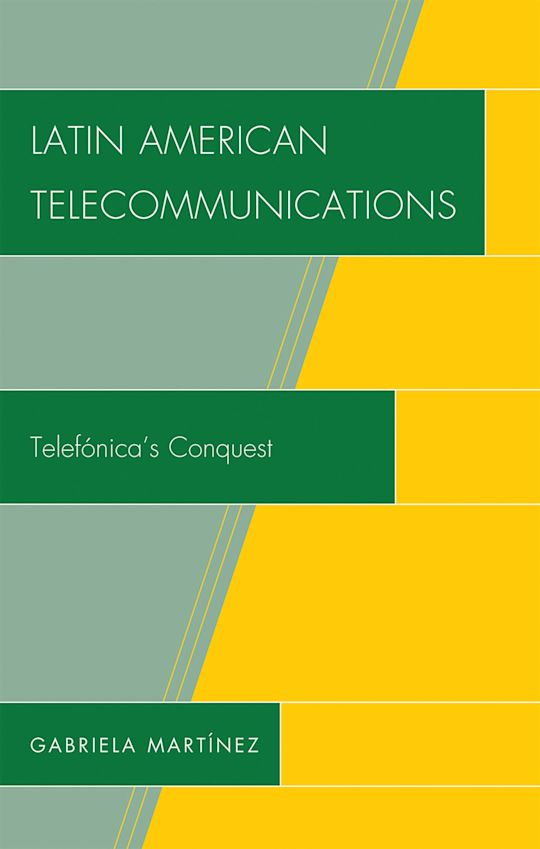- Home
- ACADEMIC
- Film & Media
- Film and Media Studies - Other
- Latin American Telecommunications
This product is usually dispatched within 1 week
- Delivery and returns info
-
Free CA delivery on orders $40 or over
You must sign in to add this item to your wishlist. Please sign in or create an account
Description
Latin American Telecommunications: Telefónica's Conquest offers an excellent overview of the political, economic, and social factors in Spain and Latin America that have aided the miraculous transformation of the semi-public Spanish telecommunications company Telefónica. What was once a national telephone company lagging behind its Western European counterparts has evolved into a global telecommunications giant conquering most of the Latin American telecom market. By examining the beginnings of Telefónica as an ITT subsidiary as well as its nationalization under Franco's regime and its later privatization in recent years, this book provides insight into the institutional growth as well as geographical expansion of this company, especially in Latin America where all state-run telecommunications enterprises became privatized throughout the 1990s and many were bought by Telefónica.
This book is unique because it brings Telefónica's media integration to the fore, tracing and analyzing its many assets and partnerships, which range from television and film studios to multiplatform media content production and distribution companies. Telefónica's close ties with Endemol, Disney, and Bertelsmann among others are examined in detail.
Table of Contents
Chapter 2 Preface
Chapter 3 1. Introduction
Chapter 4 2. Telefónica's Formative Years
Chapter 5 3. Spanish Accession to the European Community
Chapter 6 4. The New Telefónica
Chapter 7 5. Telefónica's Media Conquest
Chapter 8 6. Fudación Telefónica and Social Responsibility
Chapter 9 7. Telecommunications: Culture and Politics
Chapter 10 Bibliography
Chapter 11 Index
Product details
| Published | Aug 28 2008 |
|---|---|
| Format | Hardback |
| Edition | 1st |
| Extent | 186 |
| ISBN | 9780739124741 |
| Imprint | Lexington Books |
| Dimensions | 240 x 162 mm |
| Publisher | Bloomsbury Publishing |
About the contributors
Reviews
-
This book represents an independent view about the evolution of Telefónica from its origins as an ITT subsidiary before World War II since its conversion into a large Spanish multinational in recent decades. Its all-encompassing perspective makes the booka required reading for those who are interested in how this company became a major player in current Latin American communication marketssss
Jacint Jordana, Universitat Pompeu Fabra, Barcelona
-
This brief monograph provides a timely assessment of the Spanish telecommunications company Telefonica....The book is important, for helping to address the relative dearth of English-language communications material on Central and South America....This monograph is also valuable thanks in part to the author's ready ability to use Spanish-language documents and source material that are often little known to scholars restricted to English-language archives. But it also underlines the pace of organizational as well as technical change in Latin telecommunication networks.
Association for Education in Journalism and Mass Communication (AEJMC)
-
This book provides an enormous service for scholars of global communication by filling a gap in our understanding of Telefónica, one of the world's major media conglomerates. Drawing on a wealth of sources, Martinez deftly charts the company's rise from a regional telecommunications firm to a global giant spanning all forms of old and new media. In doing so, she joins a new wave of scholarship that demonstrates the growing power of Spanish-language media in the world today.
Vincent Mosco, Canada Research Chair in Communication and Society, Queen's University
-
This book represents an independent view about the evolution of Telefónica from its origins as an ITT subsidiary before World War II since its conversion into a large Spanish multinational in recent decades. Its all-encompassing perspective makes the book a required reading for those who are interested in how this company became a major player in current Latin American communication markets
Jacint Jordana, Universitat Pompeu Fabra, Barcelona



































